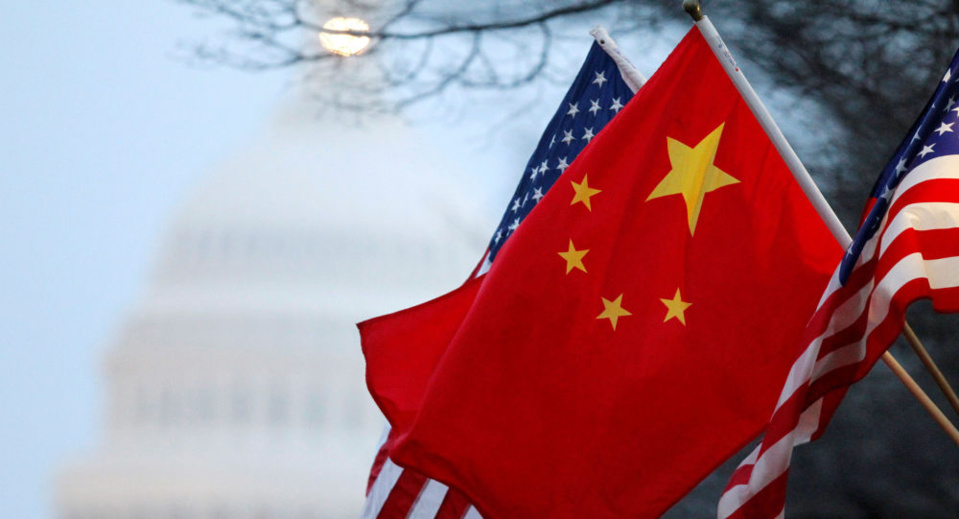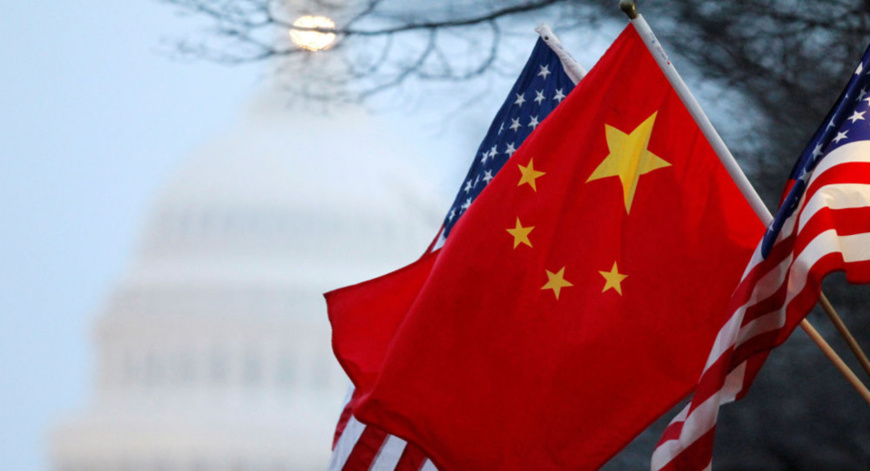People’s Daily/Global Times
China and the US are trying to restart talks to avert a full-blown trade war, Bloomberg reported Tuesday. It quoted a source familiar with the matter as saying that representatives of US Treasury Secretary Steven Mnuchin and Chinese Vice Premier Liu He are having private meetings. Another Western media source reported that US President Donald Trump is considering raising the tariffs from 10 percent to 25 percent on $200 billion of Chinese goods. It seems that Trump is trying to force China to make its biggest concession by both carrot and stick.
Negotiation between China and the US is not a bad thing. But obviously Trump's administration still lacks sincerity and is maximizing pressure on Beijing. This is not a regular trade war. Trump wants to establish his "America first" policy and the trade war is a head-on blow to the entire world. For Beijing and Washington, the trade war is a process to redefine bilateral ties amid a changing global balance of power. During the process both countries' trading power, comprehensive strength, will and cohesion will count.
The redefinition of China-US relations will come sooner or later. Some American elites do not accept China's prosperity, believing the US can strategically contain the rise of China. They are eager to show their capability and force China to be a US economic vassal just like Japan when it accepted the Plaza Accord.
If the Sino-US trade war is about economic interests, it won't be hard to resolve. When both sides suffer losses during the battle, they will eventually head toward negotiations and reach a compromise, which is much better than keeping on fighting. If both Washington and Beijing continuously raise the stakes, conflict becomes more of an overall redefinition of Sino-US relations.
Does China have the right to further keep developing itself? Should it yield to the US, listen to Washington's command and reconstruct China's economic operation mode, making it conform to US interests? Should Beijing hand over most of its economic sovereignty to the US? China says "no" and is prepared to bear some painful results of the trade war.
Repositioning ties between China and the US through a trade war, instead of a hot war or an overall Cold War is probably not a bad choice for Beijing. China's trading and economic power is precisely the strongest of all its strengths.
Facing turmoil in Sino-US ties, the Chinese people do not need to panic. Washington has the initiative to launch and terminate the trade war. But once the trade war breaks out, the US has no ability to control its development. As long as the Chinese stay united, defensive battling could rock the US trade offensive.
China must stay calm and fight this trade war like a protracted war until Washington agrees to solve bilateral trade disputes through equal negotiations and make the episode with China an example for future bilateral consultations. It is believed that China has considerable strength to keep fighting until that day comes.
(People’s Daily/Global Times)
Negotiation between China and the US is not a bad thing. But obviously Trump's administration still lacks sincerity and is maximizing pressure on Beijing. This is not a regular trade war. Trump wants to establish his "America first" policy and the trade war is a head-on blow to the entire world. For Beijing and Washington, the trade war is a process to redefine bilateral ties amid a changing global balance of power. During the process both countries' trading power, comprehensive strength, will and cohesion will count.
The redefinition of China-US relations will come sooner or later. Some American elites do not accept China's prosperity, believing the US can strategically contain the rise of China. They are eager to show their capability and force China to be a US economic vassal just like Japan when it accepted the Plaza Accord.
If the Sino-US trade war is about economic interests, it won't be hard to resolve. When both sides suffer losses during the battle, they will eventually head toward negotiations and reach a compromise, which is much better than keeping on fighting. If both Washington and Beijing continuously raise the stakes, conflict becomes more of an overall redefinition of Sino-US relations.
Does China have the right to further keep developing itself? Should it yield to the US, listen to Washington's command and reconstruct China's economic operation mode, making it conform to US interests? Should Beijing hand over most of its economic sovereignty to the US? China says "no" and is prepared to bear some painful results of the trade war.
Repositioning ties between China and the US through a trade war, instead of a hot war or an overall Cold War is probably not a bad choice for Beijing. China's trading and economic power is precisely the strongest of all its strengths.
Facing turmoil in Sino-US ties, the Chinese people do not need to panic. Washington has the initiative to launch and terminate the trade war. But once the trade war breaks out, the US has no ability to control its development. As long as the Chinese stay united, defensive battling could rock the US trade offensive.
China must stay calm and fight this trade war like a protracted war until Washington agrees to solve bilateral trade disputes through equal negotiations and make the episode with China an example for future bilateral consultations. It is believed that China has considerable strength to keep fighting until that day comes.
(People’s Daily/Global Times)
 Menu
Menu
 US, China to redefine bilateral ties through trade war
US, China to redefine bilateral ties through trade war

















